MURFREESBORO, Tenn. — Wearing her trademark western wear and displaying her equally recognizable quick wit, renowned autism advocate and animal welfare pioneer Temple Grandin gave a roomful of Middle Tennessee State University students, faculty and staff a tour of the “different thinking” she feels society should embrace more to make the world better.
A professor of animal science at Colorado State University and well-known for her advocacy for the humane treatment of animals, Grandin visited the Blue Raider campus March 13 for a documentary screening about her life, a meet and greet and book signing that evening, made possible through a collaboration with the Colorado State University College of Agricultural Sciences and MTSU School of Agriculture.
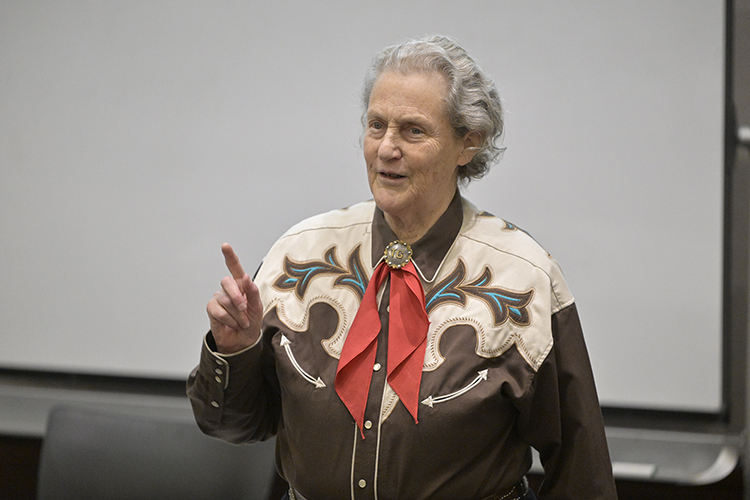
Before the screening, Grandin gave a free public lecture to a few hundred attendees in the State Farm Lecture Hall in the Business and Aerospace Building where she walked the audience through a slide presentation taking a closer look at the “three different ways of thinking” — object visualizers who think in photo realistic pictures such as photographers and graphic designers; spatial visualizers who think in patterns such as engineers, computer programmers and musicians; and verbal minds who think in words such as teachers, lawyers and writers.
A visual thinker who was diagnosed with autism as a child, Grandin said that some people can be a mixture of all three different types of thinking, but it was important for those with neurodivergent thinking to be able to work together because in reality they complement each other — and with a bit of teamwork and accommodation can develop impactful creations to benefit the workforce and the broader society.
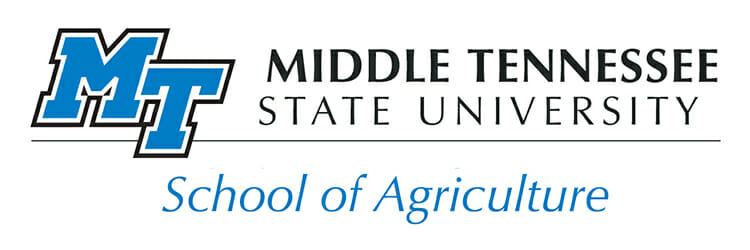
Grandin, who thinks innovative thinkers such as physicist Albert Einstein and inventor Thomas Edison were on the autism spectrum along controversial billionaire and Tesla owner Elon Musk, feels the U.S. educational system is “screening out” visual thinkers and many school systems are doing a disservice to students by removing hands-on courses such as art, sewing, cooking, woodworking, welding, auto shop and other courses where visual thinkers could thrive and lead to needed careers such as mechanical engineering.
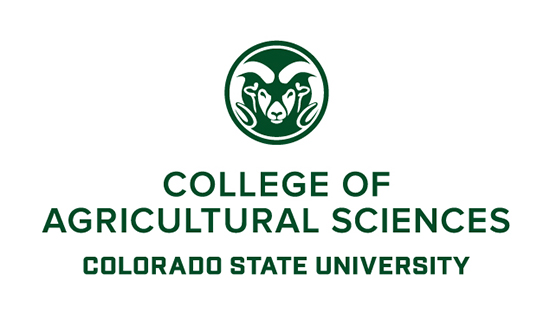
The result? “There’s a bunch of stuff we (the U.S.) aren’t making right now, like great big 3D printers, the state of the art chip-making machines.” While the research to develop such equipment originates in the U.S. through research, the actual products are made primarily in European nations, she said.
“We don’t have enough people that fix things,” she lamented, adding that the popularity of video gaming today in the U.S. is keeping what are probably very smart young people from gaining more practical life experiences. “Too many autistics don’t have any life skills.”
Grandin said that she believes artificial intelligence will “continue to hurt us,” citing a Businessweek article she read recently that said the top selling images through Adobe Photoshop were AI generated. But she noted that actual humans will always be needed somewhere along the process.
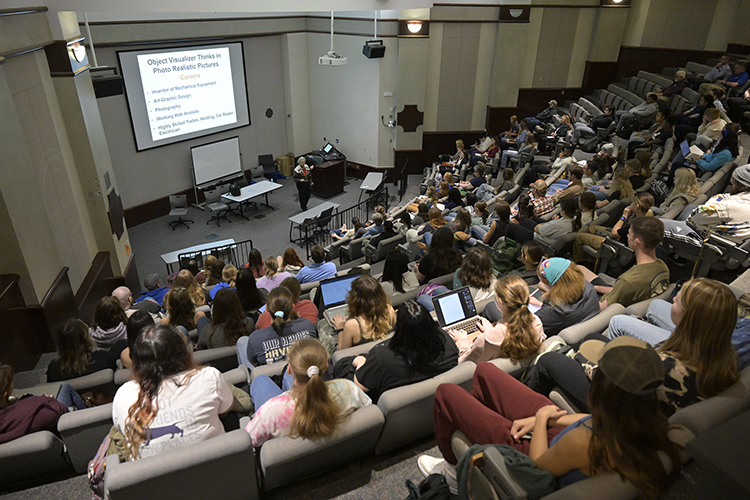
‘I like simple stuff’
Grandin encouraged the students in attendance, especially undergraduates, to help their professors with research projects so that they can get exposed to a variety of areas of study and establish mentoring relationships that can help them down the road.
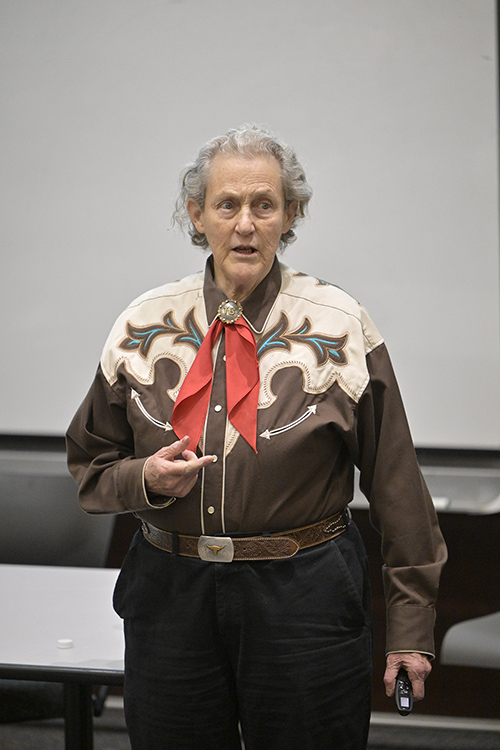
“You can find out the things you like, and you can also say, ‘yeah, I tried that and I hated it!” she continued, drawing chuckles from the crowd. “But it’s deeply important to find that out. … The thing is, we need the skills of people who think differently.”
Grandin’s determination and family support led her to pursue an education in psychology and animal science, and she has used her training and experience as an advocate for people on the autism spectrum and for humane treatment of animals.
She also is an author, whose books include “Calling All Minds,” “Thinking in Pictures,” “Thinking Differently,” “Animals in Translation” and “Animals Make Us Human.” She has written 60-plus peer-reviewed scientific papers focus on various animal behaviors.
She told the MTSU lecture audience that some of her proudest work was being hired in the late 1990s by McDonalds, Burger King and Wendy’s to teach them how to inspect meat packing plants for animal welfare. She developed a “very simple” and highly successful outcome-based scoring system to implement at the plants.
“A lot of stuff about animal welfare is too complicated. … I like simple stuff,” Grandin said in sharing how she approached developing her system. “If it wasn’t simple, people in the field can’t do it.”
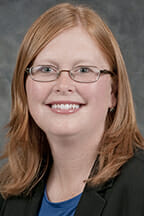
In introducing Grandin, Jessica Carter, director of the School of Agriculture, shared that Grandin came to speak as guest lecturer at her alma mater when she was an undergraduate student and that it “was such a treat.”
Following her lecture, Grandin spent the next half-hour answering questions from audience members, including J. Hayes, a junior biology major from Jackson, Tennessee, who said she began researching Grandin when introduced to her work by her high school biology teacher who had attended some of her lectures.
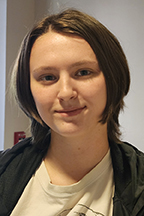
Hayes, who recently changed her major from animal science to biology to better match her interest in pursuing zoology, said one of her big takeaways from Grandin’s lecture was that a lot of labels that the public places on neurodivergent people think of them as disabilities and illnesses, and while that can be true in certain circumstances, it’s not always the case.
“It can also be strengths and things that are needed,” Hayes said. “Because a lot of what she kept reinforcing was that you need the different types of thinkers. She kept bringing it back to the point that they can all work together.”
Hayes said that while those thinkers on the extreme end of a spectrum may be identified as having ADHD, autism or dyslexia, “they are the people who may keep the Artemis from tipping over when it launches,” a reference to the NASA program to return humans to the moon.
Hayes wants to go to graduate school to pursue a Ph.D. then find a career within government or teaching and doing research at a university.
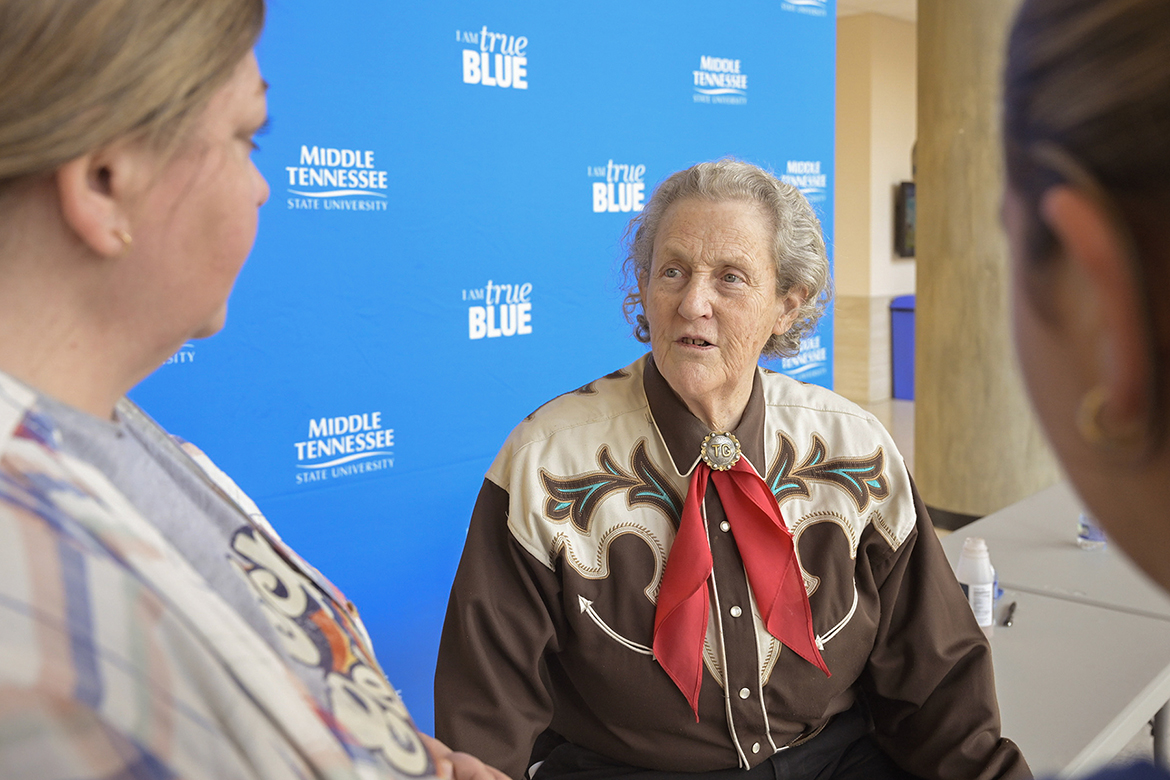
‘A full-circle moment’
Following her lecture, Grandin appeared later that afternoon and evening for a book signing and meet and greet in the Science Building Atrium before making her way to Tucker Theatre for a private screening of “An Open Door,” a documentary about Grandin produced by Colorado State.
Following the documentary screening, a Q&A session was held, moderated by the documentary’s Executive Producer John Festervand, an MTSU alumnus (Class of 2004) and director of development of Colorado State’s College of Agricultural Sciences. He was joined by co-moderator and fellow MTSU alumnus Bart Barker (Class of 2003), public information officer for Wilson County Schools and former Nashville television reporter.
“Returning to my alma mater with Dr. Temple Grandin is a surreal full-circle moment, where the past meets the present to inspire the future,” said Festervand. “It also symbolizes the power of education and mentorship in shaping our paths. I also believe it shows the importance of giving back to the roots that shaped us.” (Listen to a podcast interview of Festervand about the film and his work by “Out of the Blue” host Andrew Oppmann below.)
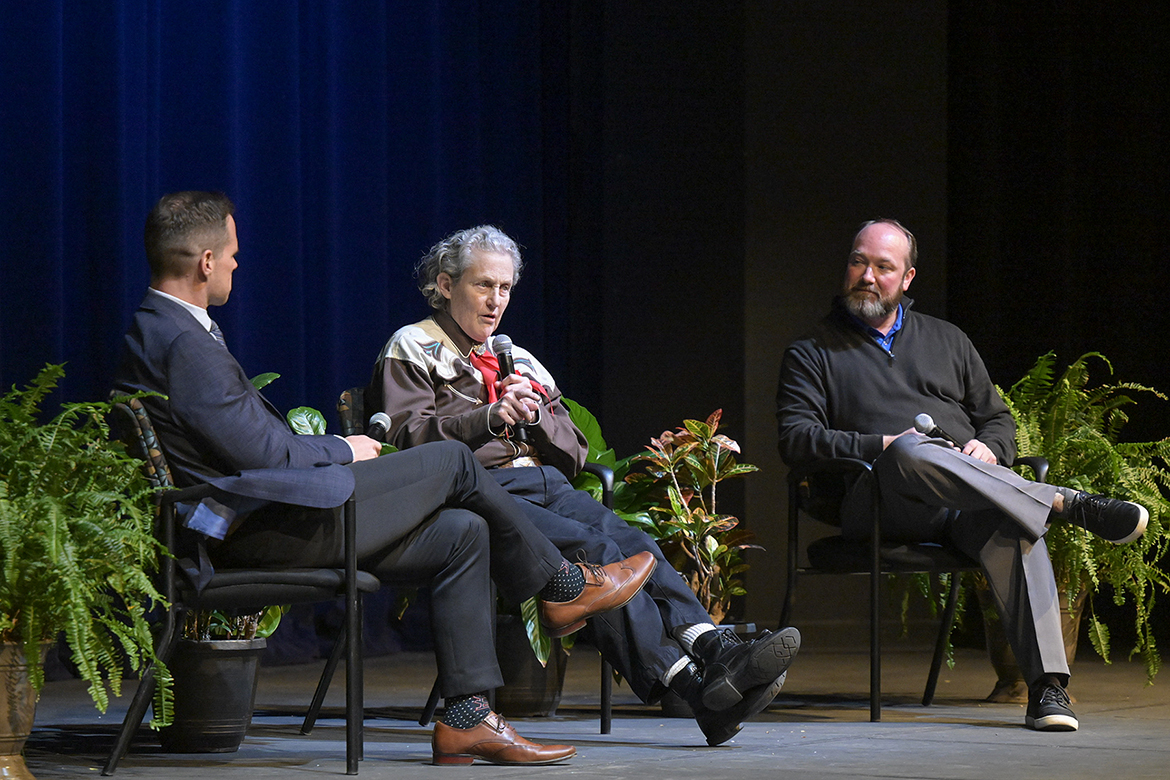
Festervand said the documentary screening was not just about showcasing a film, but it was about “fostering understanding and educating others on her enduring legacy, sparking conversations that resonate far beyond our community.”
“Bringing Dr. Temple Grandin to my alma mater to preview our documentary was a powerful opportunity to educate friends, family, alumni, and the wider Tennessee community on her extraordinary legacy, spreading awareness and inspiration to all who crossed our path,” he said.
In addition to the latest documentary, a 2010 HBO drama about Grandin’s life and accomplishments, starring actor Clare Danes, was nominated for 15 Primetime Emmy Awards and earned five, including the Emmy for the year’s most outstanding TV movie. Grandin was inducted into the American Academy of Arts and Sciences in 2016.
— Jimmy Hart (Jimmy.Hart@mtsu.edu)

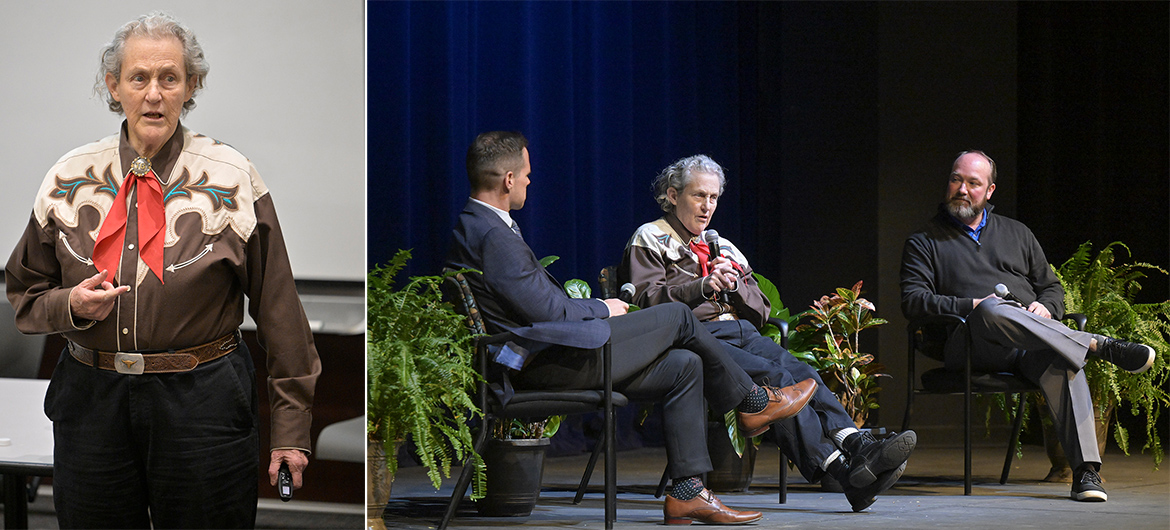
COMMENTS ARE OFF THIS POST